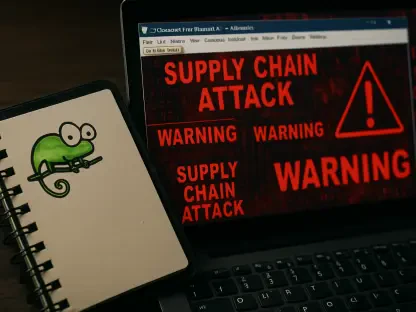Cybersecurity landscapes continue to evolve rapidly, and with it, the tactics and scale of Distributed Denial of Service (DDoS) attacks. These disruptions, which cripple networks by overwhelming them with traffic, are not just growing in number but also in sophistication, according to NetScout Systems’ latest DDoS Threat Intelligence Report for the second half of 2023.
Alarming Increase in DDoS Incidence
Politically Charged Attacks on the Rise
NetScout’s examination of the latter half of 2023 uncovers a troubling 15% spike in DDoS attacks globally. A staggering 7 million incidents were detected, signifying a world increasingly reliant on connectivity yet facing turmoil in cyberspace. This period saw a notable rise in politically motivated attacks, as groups like NoName057(16) and Anonymous Sudan orchestrated disruptions to express dissent or draw attention to their causes. These hacktivists took aim at targets related to significant political frictions, illustrating how DDoS has transcended beyond mere technical annoyance to a platform for ideological strife.
DNS Water Torture Attacks: A Growing Concern
Amid these politically tinged disruptions, DNS water torture attacks—a technique that manipulates domain name system queries to amplify the attack scale—saw a disconcerting 553% surge when compared to the first half of 2020. This evolution in attack methodology indicates attackers are no longer content with surface-level disruptions; they are targeting the very backbone of the internet’s infrastructure in a bid to cause prolonged and widespread chaos.
Persistent Threats to Key Industries
Gaming and Gambling Under Siege
Analyzing industry-specific data reveals the gaming and gambling sectors remain at heightened risk, owing to their financial prosperity and the competitive nature inherent to these domains. A majority of DDoS occurrences targeted these industries, which is telling of their allure to perpetrators seeking financial gain or looking to undermine rival services. These disruptions not only threaten the stability of online platforms but also the lucrative esports ecosystem that depends on uninterrupted connectivity.









